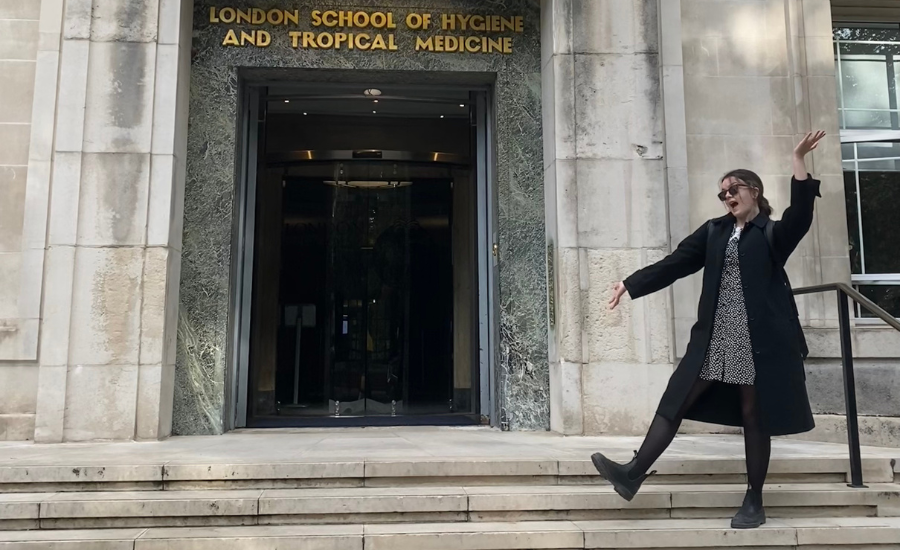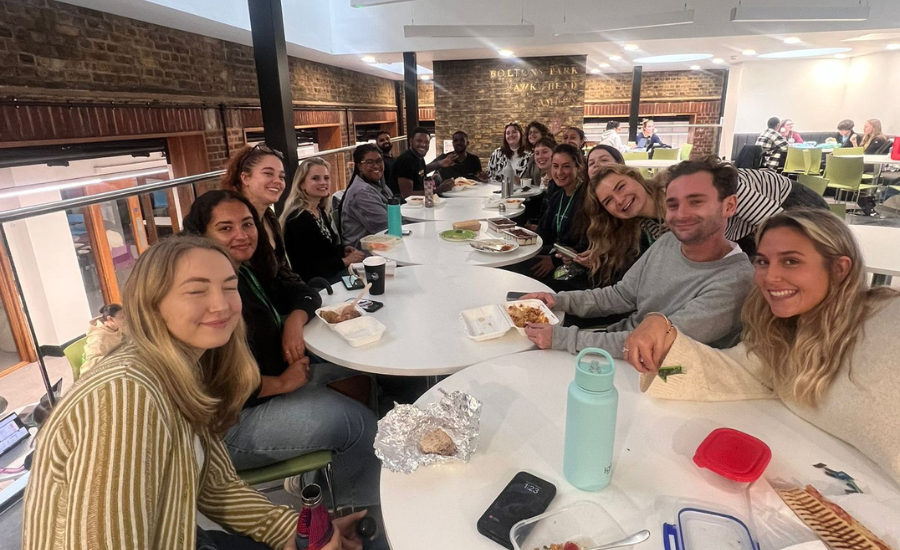From cholera dreams to malaria realities: My journey to finding the perfect summer project
9 August 2024 London School of Hygiene & Tropical Medicine London School of Hygiene & Tropical Medicine https://lshtm.ac.uk/themes/custom/lshtm/images/lshtm-logo-black.png
From the moment my MSc One Health Programme Directors introduced the summer project to us in September, my quest for the “perfect” project began. If you had asked me last summer what I wanted my project to be about, the answer was simple – Cholera. As infectious disease enthusiasts, we often ask each other, “What’s your favorite infectious disease?”, in which Cholera is my answer. But I quickly realized it’s not just about the topic or finding the perfect microbe. For me, it was about honing my epidemiological data analysis skills.
Current summer project: Exploring Malaria Trends among Nigerian Children under 5 through insights from Malaria Parasite Prevalence, Density, Species, and Developmental Phase Analysis.
Under the guidance of my supervisors, Dr David Conway and Dr David Heymann, and in collaboration with Dr Wellington in Nigeria, I am examining malaria parasite density data from the 2021 Demographic Health Survey (DHS). Our goal is to assess the geographical and temporal differences in malaria prevalence among children under five across Nigeria, a country bearing the highest malaria burden. Despite progress in reducing prevalence over the last two decades, the decline has plateaued, necessitating further analysis to understand and address this issue.
How and why did I choose this project?
Before deciding on this project, I explored various options, discussing existing projects on Cholera, MERS, M. bovis, and Rift Valley Fever (RVF) with individuals in academia, government, and NGOs, thanks to connections from LSHTM and RVC. In an ideal world, I would have pursued all of them. However, not only was that impossible, but those projects wouldn’t have fully developed the practical skills I needed to start my epidemiological career.
I sat down with one of my Programme Directors to review my options and clarify my goals. My Programme Director helped me realize something my thesis supervisor later echoed – that I have my whole professional career to explore every learning opportunity, but right now, I should focus on taking 50 steps forward rather than 500!
After considering everything, I decided this malaria project was the perfect fit. My supervisors are incredible mentors, the project would provide the data analysis skills I need, and it would involve working with substantial datasets, which is crucial for developing competencies required in national and international epidemiological research. Additionally, I would get to go back home, and most importantly, I found the project to be intellectually stimulating and fascinating, providing a deep dive into a critical public health issue.
Advice for incoming students choosing a project
Talk to Everyone: Chat with classmates, professors, guest lecturers—anyone you can! As a new grad student with just an undergraduate degree, it can be intimidating to be surrounded by physicians, vets, and other professionals. But remember, you get out what you put in. Don’t be afraid to reach out; some of my best experiences at LSHTM and RVC came from those exact conversations.
Focus on Learning Objectives: Don’t stress too much about the specific topic. Instead, think about what you want to gain from the project. Want to boost your lab skills? Improve your data collection? How is your data analysis?
Choose What You’re Passionate About: Don’t settle for a project you’re not excited about. Your passion will shine through in your work, and you’ll enjoy the process much more.
- Contact Alexandra via our contact student ambassador page.
- Read 5 steps to get yourself settled in London as an international student.
- You may be interested in: 5 things I wish I knew before starting in September at LSHTM
- Discover MSc One Health: ecosystems, humans and animals.

